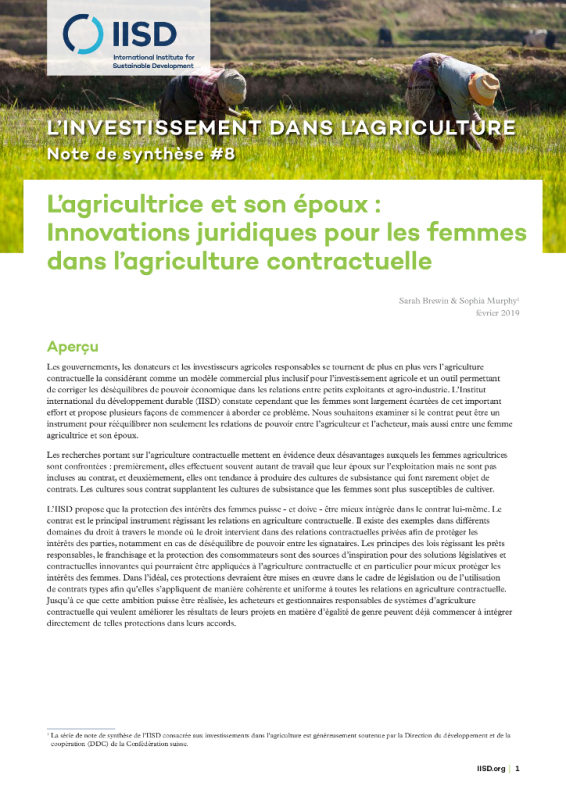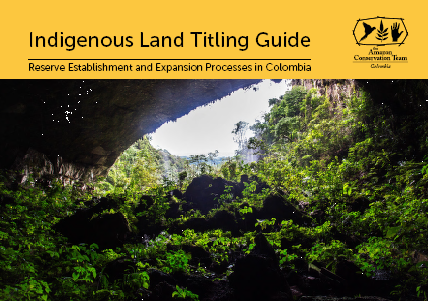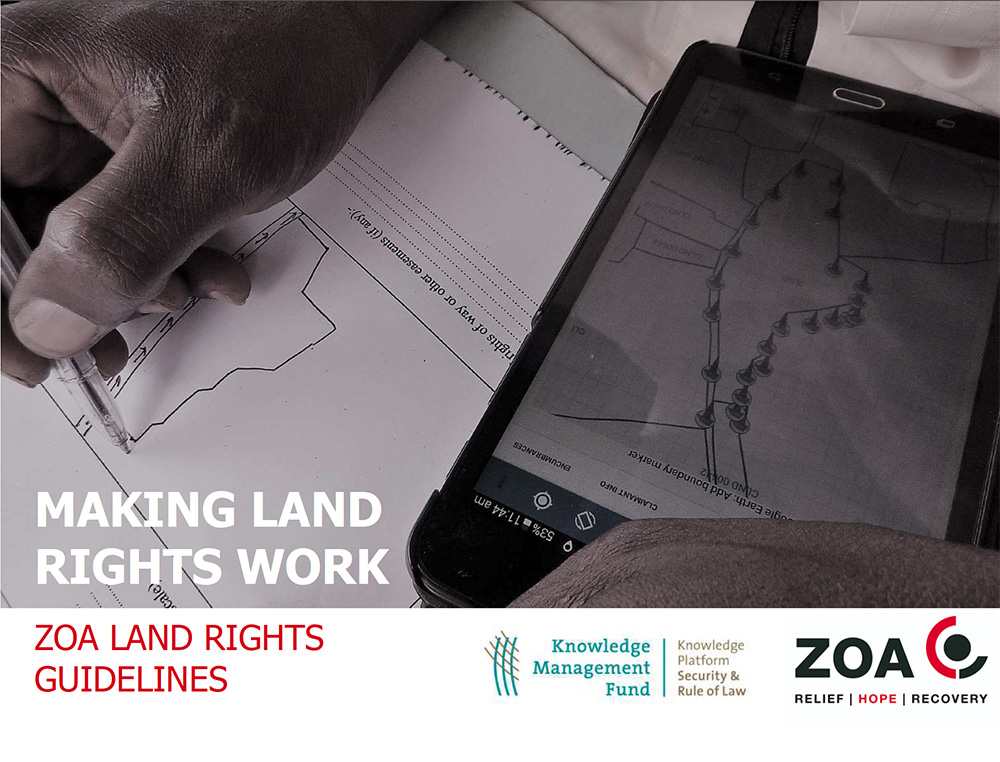Note de synthèse : L’agricultrice et son époux : innovations juridiques pour les femmes dans l’agriculture contractuelle
Date: février 2019
Source: Foncier & Développement
Par: Sarah Brewin, Sophia Murphy
L’IISD (International Institute for Sustainable Development) publie sa 8ème note de synthèse de la série « Investissements dans l’agriculture » : « L’agricultrice et son époux : Innovations juridiques pour les femmes dans l’agriculture contractuelle ».









